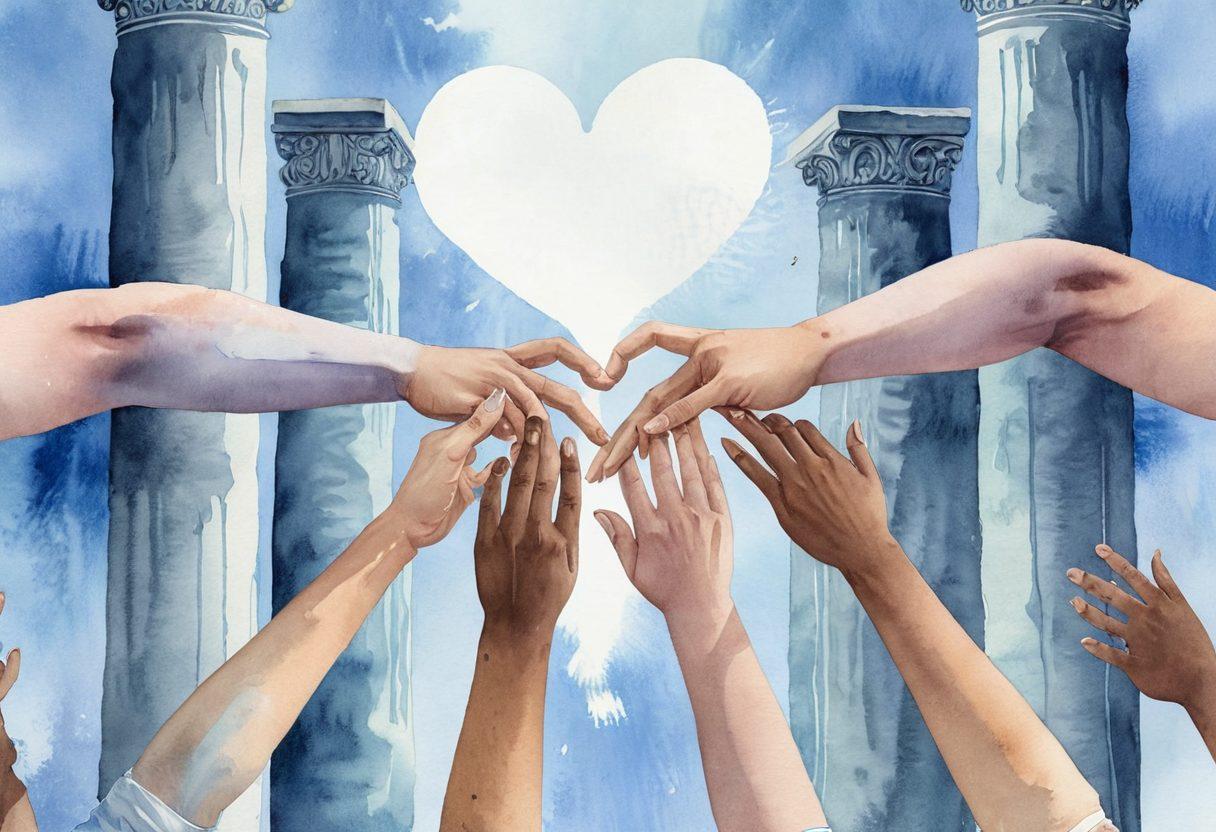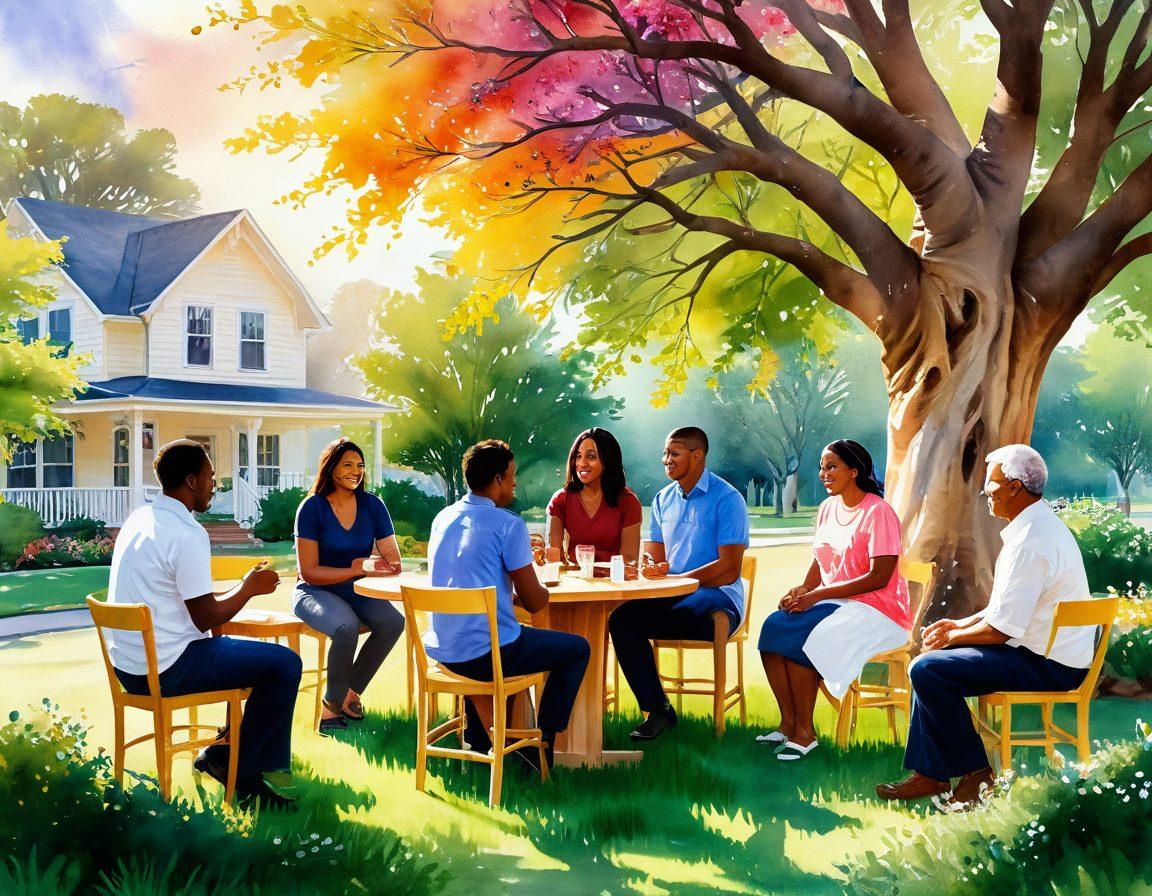Embracing the Shadows: Finding Meaning in Melancholy and the Necessity of Support
Have you ever felt as if the world is casting a dismal shadow over your life? Moments when the smiles seem far away, and feelings of melancholy creep in, leaving you feeling utterly downcast and dejected? In those stormy times, when sorrowful thoughts swirl like dark clouds, it’s essential to remember that rising from the depths of despair is not just possible—it’s a journey we all can navigate. Life’s gloomy moments often blur our vision, making it difficult to spot even the faintest glint of light. But just as the sun must set for the stars to shine, so too can our uncomfortable feelings lead us to discover profound meaning and connection in our darkest hours.
Imagine standing in a forest after a heavy rain. The trees, once vibrant, are cloaked in shades of blue and gray. But as you walk through the landscape, you notice drops of water glistening on the leaves, shimmering like tiny diamonds against the dismal backdrop. Such is life—amidst the sadness, the gloom, and the shadow of depression, there exist pearls of hope waiting to be recognized. Consider this: What if our unhappiness and melancholia were not simply states to endure but invitations to seek out the organizations and foundations that can provide support? Seeking help is not a sign of weakness; rather, it is a compelling necessity that can pave the way for healing and resilience.
Participating in a support group or association can be a game-changer when navigating through unhappiness. These often non-profit institutions act as beacons of hope for those feeling lonely and dejected. They provide a space where stories can be shared, where vulnerability becomes a bridge to connection. Isn't it reassuring to know that the despair you might feel is not unique? We are all part of the same human experience. How might our lives change if we opened ourselves up to this collective compassion?
Amid the shadows, let’s not forget the power of self-care and community. It is crucial to prioritize self-reflection and engage in practices that nurture your well-being. Journaling can be one way to articulate those sorrowful thoughts and transform them into narratives of strength. Find what resonates with you—whether it’s art, music, or nature. While on the journey through melancholy, ensure that you seek out those peer-supported groups that echo your struggles. Finding people who 'get it' can turn the lonely trek of sorrow into a shared adventure.
Lastly, remember that the necessity of allowing ourselves to grieve, to sit with our feelings, is not just an obligation but an opportunity for growth. As one wise person once said, 'The wound is the place where the Light enters you.' So, it becomes imperative to see the beauty in our struggles, for they pave the way to resilience and understanding. The journey from gloom to light is not a straight path but a winding road, filled with unexpected turns. Embrace it, take it step by step, and remember that support is always just a conversation away.
Support Systems: The Pillars That Hold Us Through Our Blue Days
Support systems act as the unseen force that holds us together during our sorrowful moments. Life can often feel like an uphill battle, where lonely paths bring forth feelings of melancholy, and the weight of despair rests heavily on our hearts. An unhappy day can transform into a gloomy week, and before we know it, we're feeling downcast and dejected. But what if I told you that amidst this chaos, there's a compelling necessity for support systems? Like sturdy pillars, they uphold us when we find ourselves knocked down by the dismal realities of life.
Imagine a sturdy foundation—a group of friends or an organization—that resonates with your story. They embrace you during your blue days, being your lighthouse during the darkest nights. Support systems are not merely optional; they are essential. It’s imperative, almost non-negotiable, to recognize that we live in a society where loneliness can thrive, yet help is always just an outreach away. How would our lives change if we casually accepted and sought out these institutions, treating them as an obligatory part of our mental health toolkit?
It's easy to overlook our feelings of sadness, brushing them aside as if they are just a phase we must weather alone. But let’s remind ourselves that seeking help is not a sign of weakness—it’s a hallmark of courage. Think of your favorite community group or nonprofit organization. Why not connect when you feel depressed? Just like a fisherman casts his net into the vast sea, reaching for the right support can reel you in from emotional waters that seem overwhelming and unfathomable.
Consider this: each time we share our stories with an association or foundation, we create a ripple of understanding. Someone, too, may feel the same dismal heaviness that engulfs you, and together, there’s strength in numbers. The conversations become the lifeblood of recovery, allowing us to transform gloomy experiences into lessons of resilience. After all, everyone deserves a soft place to land when the world feels unkind, and we owe it to ourselves to form connections that fortify our spirits.
As we gather our thoughts on the stark realities of feeling downcast, let us not shy away from the idea that support systems are a required part of our journey. There’s immense beauty in transitioning from despair to hope through shared experiences. When we engage with one another—be it through a friendly chat over coffee or a gathering at an institution that prioritizes emotional wellness—we fortify our own foundations. So, the next time you feel overwhelmed by sorrowful thoughts, remember: support systems are here, waiting to uplift us and help us navigate the complexities of melancholy with open arms and understanding hearts.
From Despair to Hope: The Essential Role of Community in Healing Melancholy
In the labyrinth of life, we often encounter moments that leave us feeling sorrowful and downcast. These episodes of despair can envelop us like a thick fog, obscuring the path ahead and leaving us in a state of melancholy. It’s during these gloomy times that we might feel isolated and vulnerable, grappling with feelings of unhappiness and dejection, wondering if anyone else understands our plight. Yet, amidst the overwhelming darkness, there lies a flicker of hope—a guiding light that shines through the kindness and support of our community.
When drowning in feelings of sadness, the necessity of support becomes glaringly apparent. Think about it: have you ever reached out to someone during a dismal day only to find their compassion transformative? It’s imperative that we recognize how pivotal others can be in our journey from feeling blue to rediscovering joy. Together with friends, family, or organizations dedicated to uplifting individuals struggling with depression, we possess the collective strength to heal and rise above our personal storms. In this digital age, resources abound in various forms—whether it’s a nonprofit organization holding workshops, or an online association providing virtual meetings for the dejected.
Storytelling can be an essential tool in bridging the gap between despair and hope. Picture this: Emily, a woman overwhelmed by the sorrow of losing her job, spends weeks in solitude, the weight of her melancholy pushing her further into isolation. Rather than succumbing to her downcast emotions, she bravely attends a local group meeting organized by a community foundation aimed at fostering connection. Here, she shares her story, finding that many others echo her feelings of despair. Slowly, the room transforms from an atmosphere of quiet suffering to one of shared experiences. As the room buzzes with laughter and support, Emily realizes she’s not alone; she’s part of a resilient society fighting against the tides of unhappiness, reminding each other of the beauty that life still has to offer.
Now, let’s explore the concept of community as a healing mechanism through a thought-provoking question: What if the key to unlocking a brighter future lies in the connections we build? Indeed, relationships cultivated within our communities can serve as a lifeline during life’s bleakest moments. The interactions within groups, whether they be informal gatherings of friends or large associations dedicated to mental health, play an obligatory role in human resilience. Each shared laugh, each word of encouragement, becomes an essential piece of the tapestry of support needed to pull individuals from the abyss of depression back into the light.
As we look towards fostering these essential connections, let’s take actionable steps: seek out local organizations focusing on mental health, or even form community meet-ups that create a safe space for sharing. Find those who inspire you, join a supporting foundation, volunteer at a community group, or simply reach out to a friend. In moments of gloom, remember—building a supportive society isn’t merely a lofty ideal; it is a non-negotiable requirement for overcoming the struggles of melancholy. Your experience, too, can transform from despair to hope through the love and support of those who surround you. Together, we can embrace our shadows, and with compassionate hearts, turn sorrow into strength.


